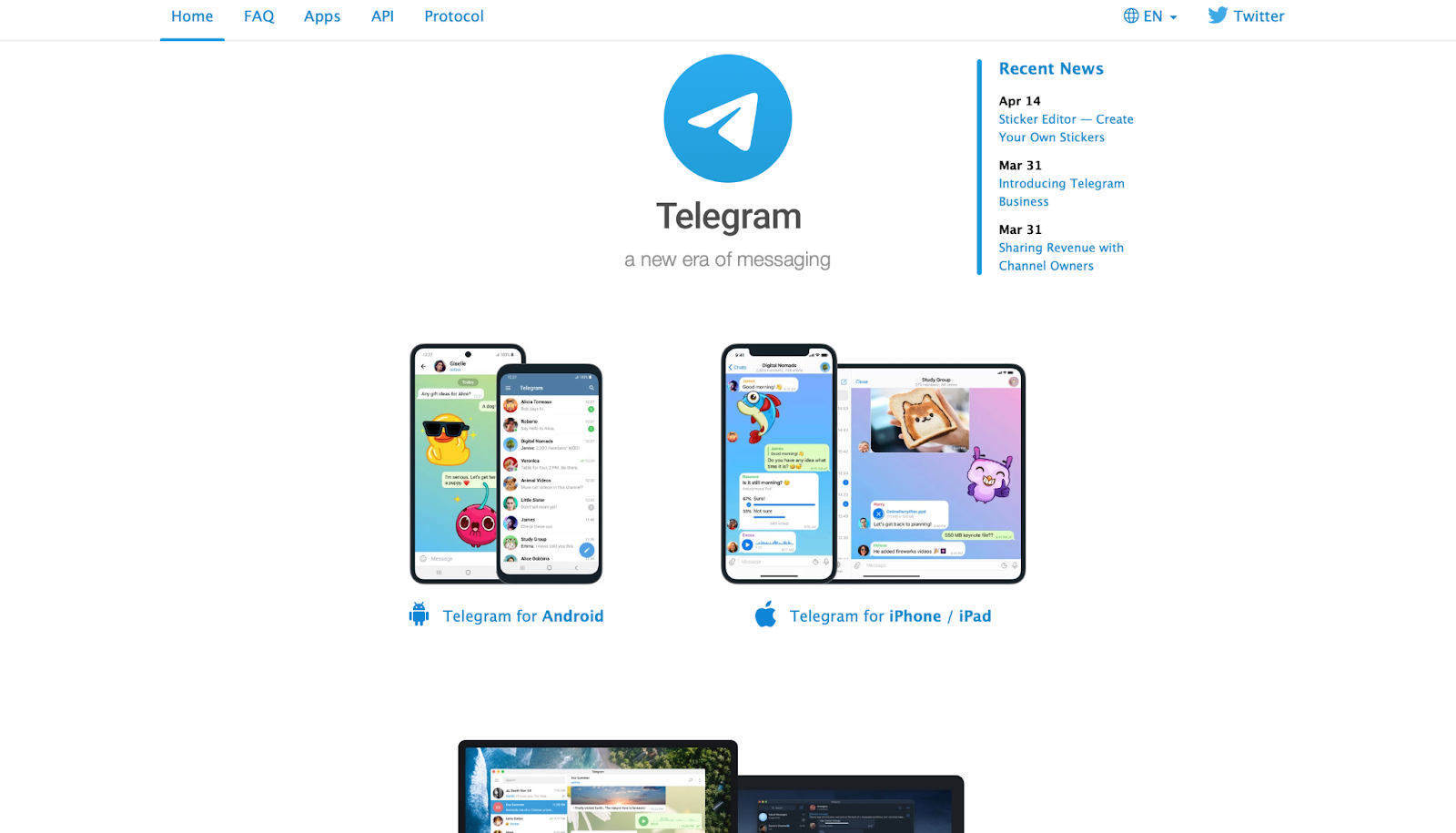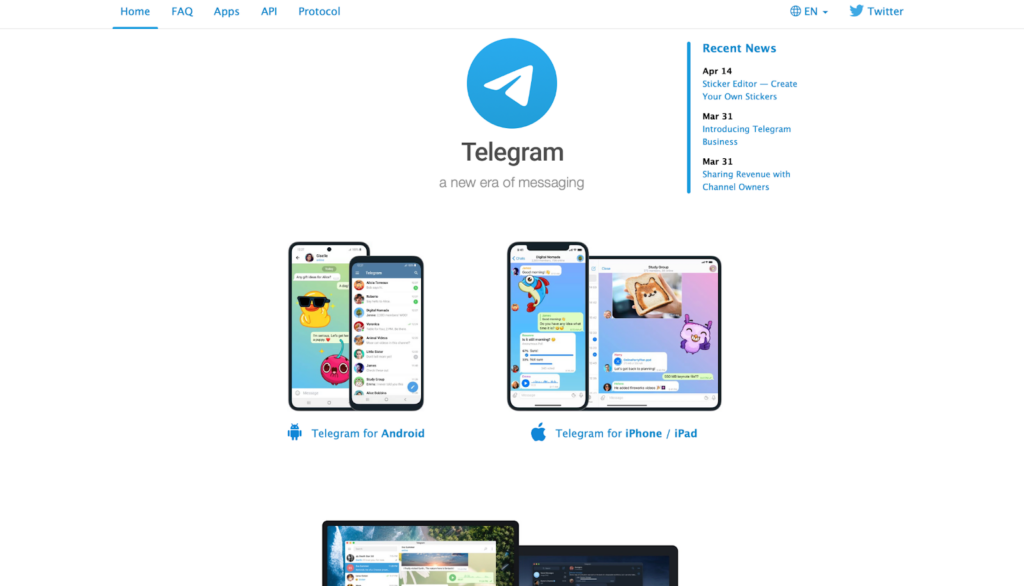Is Telegram Safe?
Laura Martisiute
Reading time: 6 minutes

Table of Contents
If you use or plan to use Telegram, you need to know: Is Telegram safe?
Below, we explain whether Telegram is:
- Safe to use.
- Good for privacy.
We also look at some steps you can take to improve both your safety and privacy when using this online service.
What Is Telegram?
Telegram is a cloud-based instant messaging service that allows users to send messages, photos, videos, and files and create large groups and channels for broadcasting to unlimited subscribers.

It offers features like end-to-end encrypted calls and secret chats and is accessible across multiple devices. Telegram is free to use.
Is Telegram Safe?
Only if you avoid group conversations and regular chats. The safety of using Telegram depends on your specific needs and concerns.
Most people use Telegram for private messaging.
Telegram offers end-to-end encryption in its “secret chats” feature, but this is not the default for regular chats and group conversations.
Telegram stores regular chat data on its servers. This enables users to access their messages from multiple devices but also means the data is potentially accessible to Telegram. Other messenger services like WhatsApp apply end-to-end encryption to all messages by default (though messages’ metadata isn’t encrypted).
Additional Telegram safety features include two-step verification and the ability to control who can see your phone number.
In 2023, Norway advised government officials against using Telegram on business devices due to security and privacy concerns.
Is Telegram Private?
Depends on how you understand the word “private.”
Telegram has several privacy features designed to improve users’ privacy, such as:
- Secret chats. Telegram provides an optional “secret chat” feature, which is end-to-end encrypted (i.e., only the sender and receiver can read those messages). Secret chats also do not allow forwarding, and users have the option to set messages to self-destruct after a specific period of time on both devices, leaving no trace on Telegram’s servers.
- End-to-end encrypted voice and video calls. Telegram offers end-to-end encryption for its voice and video calls, ensuring that these communications are secure and cannot be intercepted by a third party.
- Control over phone number visibility. On Telegram, users can control who can see their phone numbers. You can make your phone number visible to everyone, only your contacts or no one.
- Chat privacy settings. Users have control over who can add them to groups and channels. There are options to restrict this to your contacts or even specify certain users who cannot add you to groups.
- Account self-destruction. Telegram accounts can be set to self-destruct after a certain period of inactivity. If a user does not log in during this period, the account and all messages and contacts will be deleted.
- Passcode lock. Users can set an additional passcode for the Telegram app, adding an extra layer of security for accessing the app on a device.
However, Telegram has also received criticism over privacy, particularly end-to-end encryption.
While many other messaging apps offer end-to-end encryption for all messages by default, Telegram only uses this level of encryption in its “secret chats.” Regular chats and group messages are encrypted between the user’s device and Telegram’s servers, but the company can potentially access them since they are not end-to-end encrypted.
And although Telegram has made news on several occasions for refusing to hand over user data, it has equally been reported to have disclosed user data.
According to some reports, Telegram can also potentially leak your IP address.
As for Telegram’s privacy policy, it gets conflicting ratings from privacy groups.
For example, Terms of Service; Didn’t Read (a project that analyzes internet services terms of services and privacy policies) gives it a “B” rating (the same as Signal and better than WhatsApp).
On the other hand, the Common Sense Privacy Program (a project that evaluates privacy policies with children’s and students’ privacy in mind) gives it 60% out of 100%, which means that the service does not meet their recommendations for privacy and security.
Some of the concerns that Common Sense Privacy Program highlights are:
- Users are not notified when material changes are made to the policy.
- Changes to the policy are effective immediately, and continued use of the product indicates consent.
- Unclear whether geolocation is collected.
- Notice isn’t given if the company gets a legal request for a user’s information.
- Unclear if the company tries to maintain the accuracy of the data it collects.
Read Telegram’s full privacy policy here.
How to Improve Your Safety and Privacy When Using Telegram
Follow the below steps to improve your safety and privacy while using Telegram.
- Use secret chats. For sensitive conversations, use Telegram’s secret chats feature, which provides end-to-end encryption. Messages in secret chats can’t be forwarded and can be set to self-destruct after a certain time.
- Enable two-step verification. Make your account more secure by enabling two-step verification (2FA).
- Manage privacy settings. You can control who can see your phone number, profile photo, and last-seen status and restrict who can add you to groups.
- Be cautious with new contacts. Be wary of messages from unknown contacts, especially those containing links or files, as these could be phishing attempts or contain malware.
- Control message forwarding. Set up your privacy settings to restrict who can forward your messages. This can help prevent your messages from being shared with unintended audiences.
- Use passcode lock. Set a passcode lock on your Telegram app to prevent unauthorized persons from accessing the app on your device.
- Review Active Sessions regularly. Check the ‘Active Sessions’ section in settings to monitor and manage the devices where your Telegram account is logged in. Close any sessions that you don’t recognize or no longer need.
- Be mindful of group privacy. In groups and channels, be aware that your username is visible to other members, even if they’re not in your contacts.
- Update the app regularly. Updates often include security enhancements and new privacy features.
Our privacy advisors:
- Continuously find and remove your sensitive data online
- Stop companies from selling your data – all year long
- Have removed 35M+ records
of personal data from the web
Save 10% on any individual and
family privacy plan
with code: BLOG10
news?
Don’t have the time?
DeleteMe is our premium privacy service that removes you from more than 750 data brokers like Whitepages, Spokeo, BeenVerified, plus many more.
Save 10% on DeleteMe when you use the code BLOG10.

















